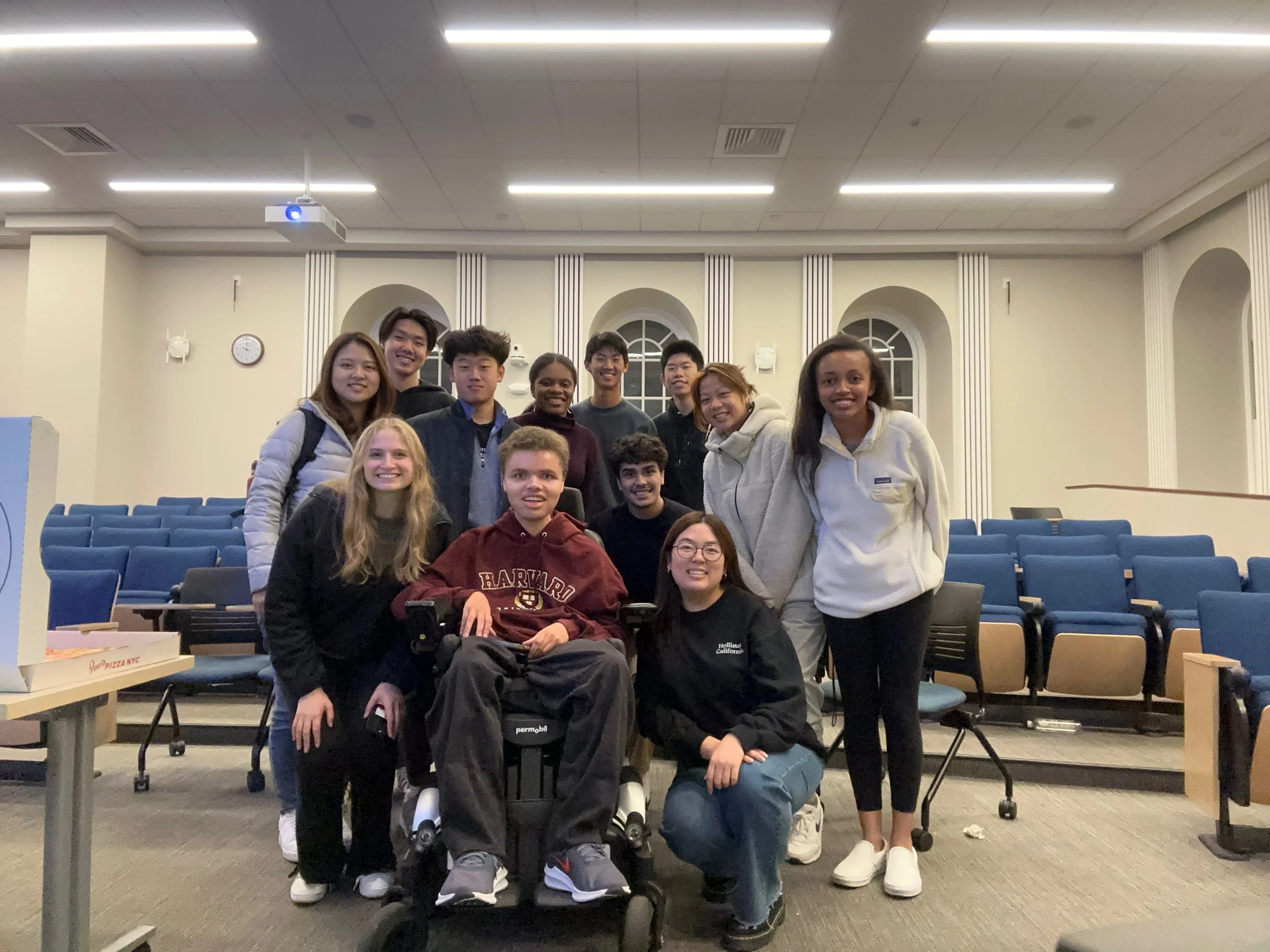Emerging Better: Personal and Public Health Goals after the Covid-19 Pandemic
Richard T Lee
Vaccines and other measures will hopefully reduce Covid-19 dramatically throughout the world in 2021, and many of us are anxiously looking forward to a “return to normal”. But as much as we miss the interactions and activities of pre-Covid life, it’s an ideal time to consider the possibility of “emerging better” instead of normal. This applies to personal health choices that we each make, as well as public health choices that we make collectively. Let’s start with some of the personal choices, because those are sitting in front of most of us right now, and then consider the more challenging issue of how lessons from Covid-19 could reframe public health decisions. The stakes are high. For many people, how they decide to live after Covid-19 may determine if they have vibrancy vs. debilitating chronic diseases in their later years.
Personal health choices in a post-pandemic world
Covid-19 has taught the public that there are clear measures for protecting ourselves from respiratory illnesses including influenza, which contributes to tens of thousands of American deaths each year. 1 While we will likely not be wearing masks forever, better hand hygiene, staying home when ill rather than infecting others in the workplace, and greater confidence in flu vaccinations are some of the respiratory measures that should persist. In addition to the obvious lessons on respiratory transmission, Covid-19 revealed surprising impacts of high blood pressure, obesity, diabetes, and cigarette smoking—all increase risk of severe illness and deaths in Covid-19 patients. 2 These are substantially preventable non-infectious conditions that should not be viewed as inevitable consequences of modern life and will remain major risks to life after Covid. Lifestyle changes are always difficult, but most of us modified our lives during the pandemic, and we’ll have to modify them again when Covid is under control. The post-Covid reboot is an opportunity to adopt measures that will reduce chronic illnesses later in life.
Many debilitating conditions can be delayed or prevented. Adopting a healthy lifestyle reduces nearly 2/3 of the risk for heart failure, stroke or cardiovascular disease. 3 Data also supports reduction in dementia risk with lifestyle changes, even in patients at high genetic risk of dementia. 4 Most of us should be considering how to redefine our lifestyle choices in 2021. We have changed our shopping, drinking, dining and exercise habits, and we will be changing them again soon. Many will have different commutes or different job descriptions post-Covid. Getting daily exercise should be your post-Covid plan, and this does not mean everyone should become a long-distance runner. As of 2016, only 26% of men and 19% of women in the US report sufficient physical activity, recommended as at least 150 minutes of moderate-intensity aerobic physical activity per week and 2 days per week of muscle-strengthening activity. 5 Even brief periods of high intensity exercise can lead to improved fitness—all with just a few minutes of total exercise time per week. 6 Reassessing exercise, diet, alcohol, and added sugars as we emerge from Covid could improve many aspects of health.
Christmas Zoom featuring Dr. Richard Lee’s Grandson
Re-framing Public Health after Covid
A receding Covid-19 pandemic should provide a setting to reframe public health policies on non-infectious diseases. We erroneously regard many non-infectious diseases as inevitable, or the product of bad choices. Adopting a shared-responsibility position and treating these problems as public health challenges like Covid-19 could allow policies to impact health without major infringements on freedom. For example, the world is slowly eliminating industrially-produced trans fats from the food supply, based on overwhelming evidence that artificial trans fats increase heart disease. 7 Most Americans don’t know what a trans fat is—but they share the benefits of reduction of trans fats in our food supply.
About 500,000 Americans die every year from cigarette smoking—substantially more than deaths from Covid-19 in 2020. 8 That is not to minimize the devastation of Covid-19, but to highlight that cigarette smoking is an ongoing catastrophic pandemic. We have methods that work against cigarette smoking, but we need to place smoking in the perspective of a humanitarian disaster and stop considering it a solved problem. 9 Smoking may be perceived as a bad choice by an individual, but that is not a productive position when one considers the scope of the problem and that public health measures can be effective.
We should also place the obesity epidemic in perspective; obesity leads to around 280,000 US deaths each year 10 , on the order of Covid deaths in the US in 2020. Therapies like medications and obesity surgery are effective, and in my experience, most patients with obesity believe that they bear responsibility for their obesity. But obesity is not a personal choice, and treating it that way is getting us nowhere—not when it threatens half of our population. Fat shaming is worthless and cruel, and we need to recognize that our current food and lifestyle environment is unhealthy for our citizens. Ultimately, we will need science-based public health approaches to obesity, and this may mean some shared sacrifice for the common good. For example, taxes on sugar-sweetened beverages and financial incentives to exercise may seem unreasonable to those who feel that people should make those choices without external interference. But, just as wearing a mask during the Covid pandemic is a minor inconvenience to help prevent spreading a deadly disease, using the power of government to reduce obesity is going to be essential. We stood by and watched the smoking pandemic explode, and we are doing it again with obesity. If we do nothing, billions of people in the world will suffer the consequences.
Back to Normal isn’t good enough: Health Care Disparities
Finally, Covid-19 has revealed injustice in our society that we can no longer ignore. Those of us who worked in Covid hospital units have had the experience of going from room-to-room and seeing one minority patient after another trying to catch their breath. That is a reality that hasn’t been adequately captured by the media. Covid’s impact on minorities has laid bare that many factors are contributing to chronic diseases in minority communities, including high blood pressure, diabetes and obesity. 11 The solutions will require long and hard work beyond equity in health care. But one thing is clear--when it comes to health care disparities, we cannot simply go back to normal.
About the Author
Richard T Lee is a Professor of Stem Cell and Regenerative Biology at Harvard University, Professor of Medicine at Harvard Medical School, and Senior Physician at Brigham and Women’s Hospital.
References
- Rolfes MA, Foppa IM, Garg S, Flannery B, Brammer L, Singleton JA, et al. Annual estimates of the burden of seasonal influenza in the United States: A tool for strengthening influenza surveillance and preparedness. Influenza Other Respir Viruses. 2018;12(1):132-7.
- Jordan RE, Adab P, Cheng KK. Covid-19: risk factors for severe disease and death. BMJ. 2020;368:m1198.
- Barbaresko J, Rienks J, Nothlings U. Lifestyle Indices and Cardiovascular Disease Risk: A Meta-analysis. Am J Prev Med. 2018;55(4):555-64.
- Lourida I, Hannon E, Littlejohns TJ, Langa KM, Hypponen E, Kuzma E, et al. Association of Lifestyle and Genetic Risk With Incidence of Dementia. JAMA. 2019.
- Piercy KL, Troiano RP, Ballard RM, Carlson SA, Fulton JE, Galuska DA, et al. The Physical Activity Guidelines for Americans. JAMA. 2018;320(19):2020-8.
- Serrablo-Torrejon I, Lopez-Valenciano A, Ayuso M, Horton E, Mayo X, Medina-Gomez G, et al. High intensity interval training exercise-induced physiological changes and their potential influence on metabolic syndrome clinical biomarkers: a meta-analysis. BMC Endocr Disord. 2020;20(1):167.
- Brownell KD, Pomeranz JL. The trans-fat ban--food regulation and long-term health. N Engl J Med. 2014;370(19):1773-5.
- The Health Consequences of Smoking-50 Years of Progress: A Report of the Surgeon General. Reports of the Surgeon General. Atlanta (GA)2014.
- Proctor RN. The cigarette catastrophe continues. Lancet. 2015;385(9972):938-9.
- Allison DB, Fontaine KR, Manson JE, Stevens J, VanItallie TB. Annual deaths attributable to obesity in the United States. JAMA. 1999;282(16):1530-8.
- Chowkwanyun M, Reed AL, Jr. Racial Health Disparities and Covid-19 - Caution and Context. N Engl J Med. 2020;383(3):201-3.












Dr. Rose Molina is a board-certified Obstetrician-Gynecologist at The Dimock Center and Beth Israel Deaconess Medical Center. Dr. Molina holds a Master of Public Health in Clinical Effectiveness from the Harvard T.H. Chan School of Public Health, and is an Assistant Professor of Obstetrics, Gynecology, and Reproductive Biology at Harvard Medical School, where she is also the Faculty Director of the Medical Language Program and Health Equity Societal Theme. Additionally, Dr. Molina is a member of Ariadne Labs where she works to improve quality and equity in pregnancy care worldwide. As an AHRQ Learning Health Systems K12 scholar, she leads research on language barriers in pregnancy care and improving patient-clinician trust.